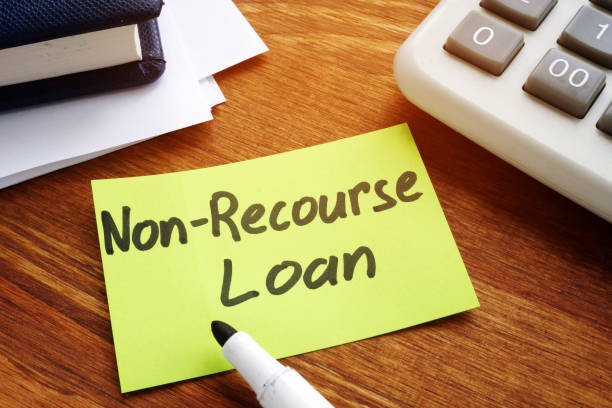Florida Non-Recourse Loan Financing. Navigating the world of real estate investment can be complex. Especially when it comes to financing options. One such option that’s gaining traction among Florida real estate investors is non-recourse loan financing. But what exactly is it? In essence, a non-recourse loan is a type of loan where the borrower’s liability is limited to the collateral for the loan, typically the property itself.
This guide will delve into the nitty-gritty of Florida non-recourse loan financing. We’ll explore its pros and cons, how it compares to recourse financing, and the requirements for securing such a loan.
Whether you’re a seasoned investor or a newbie, this guide will provide valuable insights to help you make informed decisions.

Understanding Non-Recourse Loans in Florida
Non-recourse loans are a unique type of financing. They’re particularly popular among real estate investors in Florida.
Why?
Because they offer a level of protection to the borrower that’s not found in other types of loans. In a non-recourse loan, the lender’s only recourse, in case of default, is the collateral. This means that if you default on the loan, the lender can only seize the property you used as collateral.
Your personal assets are safe.
Here are some key points to understand about non-recourse loans in Florida:
- They’re typically used for large, long-term loans, such as mortgages for investment properties.
- The lender cannot pursue personal assets in case of default.
- They often have higher interest rates compared to recourse loans.
- They’re more common in commercial real estate but can also be used in residential real estate.
- Florida law allows for non-recourse loans, making them a viable option for real estate investors in the state.
Non-Recourse vs. Recourse Financing: What’s the Difference?
When it comes to real estate financing, you’ll often hear about two types of loans: non-recourse and recourse. But what’s the difference?
In simple terms, the difference lies in what happens if you default on the loan.
With a recourse loan, the lender can go after your personal assets to recover the debt. This means that if the sale of the collateral doesn’t cover the loan amount, the lender can sue you for the difference.
On the other hand, with a non-recourse loan, the lender’s only recourse is the collateral. If you default, the lender can seize and sell the collateral, but they can’t go after your personal assets.
Here are some key differences between non-recourse and recourse loans:
- Recourse loans: The lender can pursue personal assets in case of default. They typically have lower interest rates. They’re more common in residential real estate.
- Non-recourse loans: The lender cannot pursue personal assets in case of default. They often have higher interest rates. They’re more common in commercial real estate.
Understanding these differences is crucial when deciding which type of loan is right for your investment strategy.
The Pros and Cons of Non-Recourse Loan Financing
Non-recourse loans can be a great tool for real estate investors. But like any financial instrument, they come with their own set of pros and cons.
One of the biggest advantages of non-recourse loans is the protection of personal assets. If you default on the loan, the lender can only seize the property used as collateral. Your personal assets remain untouched.
However, non-recourse loans aren’t without their drawbacks. They often come with higher interest rates compared to recourse loans. This is because the lender takes on more risk.
Here are some pros and cons of non-recourse loans:
- Pros: Protection of personal assets, potential for higher loan amounts, tax benefits, and flexibility in loan structuring.
- Cons: Higher interest rates, stricter lending criteria, potential for negative tax implications, and limited availability.
It’s important to weigh these pros and cons before deciding on a non-recourse loan. Always consider your investment goals and risk tolerance.
Requirements for Non-Recourse Loan Financing in Florida
Getting a non-recourse loan in Florida isn’t as simple as walking into a bank and asking for one. There are specific requirements you need to meet.
Firstly, non-recourse loans are typically only available for commercial real estate investments. This means you’ll need to be investing in properties like office buildings, retail spaces, or multi-family housing units.
Secondly, lenders will look at your investment history. They want to see that you have a track record of successful real estate investments. This gives them confidence that you’ll be able to repay the loan.
Here are some common requirements for non-recourse loans in Florida:
- Commercial real estate investment
- Proven track record of successful investments
- Strong business plan
- Property appraisal
- Adequate insurance coverage
Credit Score Considerations
While credit scores are important in most loan applications, they play a lesser role in non-recourse financing. This is because the loan is primarily secured by the property, not your personal credit.
However, a good credit score can still help. It can show the lender that you’re financially responsible. This could potentially lead to better loan terms. So, while it’s not the main factor, don’t ignore your credit score when applying for a non-recourse loan.
How to Apply for a Florida Non-Recourse Loan
Applying for a non-recourse loan in Florida is a process that requires careful planning and preparation. It’s not as simple as filling out a form and waiting for approval.
You’ll need to start by finding a lender who offers non-recourse loans. This could be a bank, a private lender, or a mortgage broker. Once you’ve found a potential lender, you’ll need to prepare your loan application.
Here are the steps to apply for a non-recourse loan:
- Find a lender
- Prepare your loan application
- Submit your application
- Wait for approval
Documentation Needed
When you apply for a non-recourse loan, you’ll need to provide certain documents. These will vary depending on the lender, but they typically include financial statements, a business plan, and a property appraisal.
These documents help the lender assess your financial situation and the viability of your investment. So, make sure you have all your documents in order before you apply.
Real Estate Investors: Why Choose Non-Recourse Loans in Florida?
For real estate investors, non-recourse loans can be a game-changer. They offer a level of protection that recourse loans simply can’t match. If your investment goes south, you won’t be personally liable for the debt.
In Florida, the real estate market is booming. This makes it an attractive place for investors. Non-recourse loans can help you take advantage of this opportunity without putting your personal assets at risk.
So, if you’re a real estate investor in Florida, consider non-recourse loans. They could be the key to your next successful investment.
Spotlight on Palm Beach County
Palm Beach County is a prime location for real estate investment in Florida. It’s known for its luxury properties and high-end real estate market.
Investing in Palm Beach County could be a smart move. And with a non-recourse loan, you can do it without risking your personal assets.
“
Finding the Right Mortgage Brokers and Lenders
When it comes to securing a non-recourse loan in Florida, choosing the right mortgage broker or lender is crucial. They can guide you through the process, help you understand the terms, and negotiate the best deal for you.
But not all brokers and lenders are created equal. Some specialize in non-recourse loans, while others may not have the necessary experience or knowledge. So, it’s important to do your homework before making a decision.
Here are a few things to consider when choosing a mortgage broker or lender for your non-recourse loan:
- Experience with non-recourse loans: This is a specialized field, so you want someone who knows the ins and outs.
- Reputation: Check reviews and ask for references to ensure they have a solid track record.
- Transparency: They should be upfront about fees, terms, and any potential risks.
- Customer service: You want a broker or lender who will be there to answer your questions and guide you through the process.
Conclusion: Is Non-Recourse Financing Right for You?
Deciding whether non-recourse financing is right for you depends on your individual circumstances and investment goals. It’s a tool that can offer protection and flexibility, but it also comes with its own set of risks and requirements.
In the end, the best way to make an informed decision is to do your research, consult with professionals, and weigh the pros and cons. Remember, investing in real estate is a big decision, and the financing method you choose can have a significant impact on your success. So, take your time, ask questions, and make the choice that feels right for you. Contact us today.


